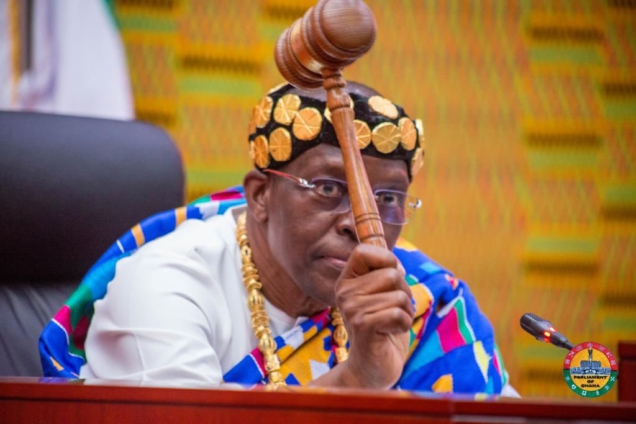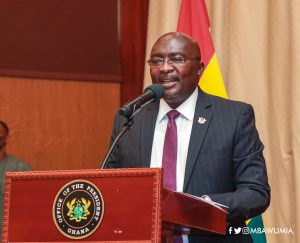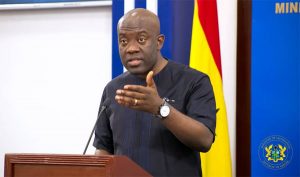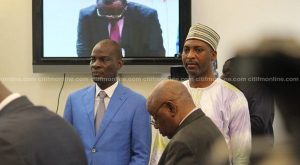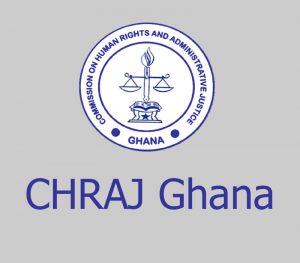The Speaker of Parliament, Alban Bagbin has added his voice to growing concerns over the arrest of journalists in recent times.
He says detaining journalists over allegations of false publications and misreporting is archaic and must not be entertained.
For the Speaker, such incidents are not criminal matters, but civil.
Speaking at the commissioning of the Parliamentary Press Corps Centre, the Speaker urged the police to use the appropriate means in dealing with such issues.
“If the writings of journalists affect people, they know what to do. Do they have recourse to the law? These are civil matters; they are not criminal. I am not for the moment holding brief for the unprofessional conduct of journalists. There is a cure for it in our current legal regime. The increasing tendency on the part of the police to arrest journalists for what they describe as mistakes is old-school, it’s anachronistic. It is sending this country into the dark ages of media persecution.”
Within three weeks, four journalists and activists have been arrested by the police, often for allegations they made on radio or on social media, which according to the police are false.
The arrested persons include; Accra FM’s Bobie Ansah, Power FM’s Oheneba Boamah Bennie, and the Executive Director of the Alliance For Social Equity and Public Accountability (ASEPA), Mensah Thompson who were all slapped with the charge of publication of false news and offensive conduct.
The development has reignited conversations on whether Ghana has returned to the dark days of criminal libel where many journalists were incarcerated over publications they made.
Police Service not targeting journalists for arrest
The Director-General of Public Affairs at the Ghana Police Service, DCOP Kwesi Ofori, has debunked claims that the police are targeting journalists for arrest in a wave of actions to intimidate them.
According to him, the police’s actions are purely based on their compliance with the law.
DCOP Kwesi Ofori said the police have remained fair, firm and professional in their handling of cases of arrests, not limited to journalists.
“All that we are saying is that the journalists must be responsible and make sure that things put out are information that is true and accurate. When things are done haphazardly, it creates a problem for everyone,” he said.
“I think the police are being fair to all manner of persons in this country. When a case is lodged and it can be referred to in our criminal code, the law is there and they have not been repealed, it is not about people in authority, anybody can report that case,” he said.
The police officer said to the extent that Section 207 and Section 208 of the Criminal offences code are active and not repealed, the police has a duty to enforce it and hold those who fall foul accountable.
He said the police believes that the court is the final and a credible arbiter, and so persons who are aggrieved or believe the police do not have the power to effect an arrest in some of the circumstances can sue.

